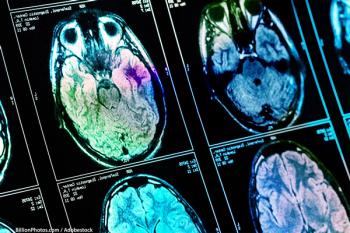
Oncology NEWS International
- Oncology NEWS International Vol 15 No 8
- Volume 15
- Issue 8
Takeda Signs Agreement With Galaxy Biotech for HuL2G7
Takeda Pharmaceutical has signed an exclusive licensing agreement with Galaxy Biotech (Mountain View, California) to develop, manufacture, and market HuL2G7, a recombinant humanized anti-hepatocyte growth factor (anti-HGF) monoclonal antibody developed by Galaxy Biotech. HGF is believed to mediate proliferation, metastasis, antiapoptosis, and neoangiogenesis of many types of tumors. In animal models, treatment of intracranial glioma xenografts with HuL2G7 induced substantial tumor regression and prolonged survival (Clin Cancer Res 12:1292-1298, 2006).
TOKYO, JapanTakeda Pharmaceutical has signed an exclusive licensing agreement with Galaxy Biotech (Mountain View, California) to develop, manufacture, and market HuL2G7, a recombinant humanized anti-hepatocyte growth factor (anti-HGF) monoclonal antibody developed by Galaxy Biotech. HGF is believed to mediate proliferation, metastasis, antiapoptosis, and neoangiogenesis of many types of tumors. In animal models, treatment of intracranial glioma xenografts with HuL2G7 induced substantial tumor regression and prolonged survival (Clin Cancer Res 12:1292-1298, 2006).
Articles in this issue
over 19 years ago
Younger Age at Brain Tumor Diagnosis Portends Poor Emotional Outcomeover 19 years ago
Triple Targeted Therapy Is Tested in Pts With Solid Tumorsover 19 years ago
FDA Approves Three-Drug Combination Tablet for HIV-1over 19 years ago
Side Effects Persist 16 Years After Prostate Ca Brachytherapyover 19 years ago
No Significant QOL Differences for Raloxifene and Tamoxifenover 19 years ago
Amrubicin Appears Promising in Small-Cell Lung Cancerover 19 years ago
R-MP Active in Older Pts With Newly Diagnosed Myelomaover 19 years ago
Sunitinib and Sorafenib Active in Phase II Advanced NSCLC Trialsover 19 years ago
Experimental Regimens Fail to Boost Pancreatic SurvivalNewsletter
Stay up to date on recent advances in the multidisciplinary approach to cancer.






































